Armenian Artists report from quarantine: Intensifying Anxiety, Fading Hope

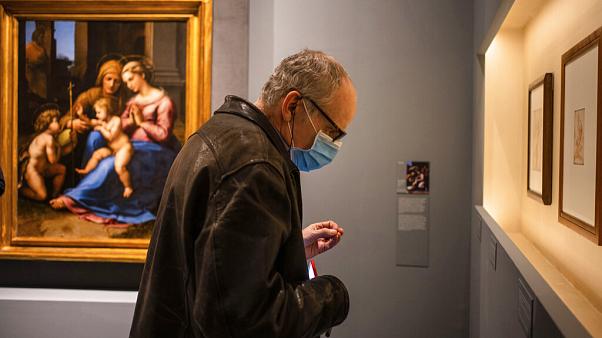
Ara Dinkjian (Musician): Let’s be together, be human
Since I am mostly a stay-at-home person even during “normal” times, the quarantine status has not affected my physical creative routine. I remain surrounded by my instruments and recording equipment. Psychologically, however, I have been shaken. As a father, husband, grandfather, son, brother, and friend, I have a need to protect my loved ones. I have become pre-occupied with trying to maintain their safety. So I suppose that concern has superseded the amount of time I would usually spend with my music. Nonetheless, I have written some new songs, probably because I have always gone to music for comfort and answers. Since virtually all of my music reflects on the human condition, both as individuals and humanity as a whole, this pandemic, certainly unprecedented in our lifetime, has forced us to see what we all have in common. This vision is what I have always tried to accomplish with my music. So, in a bizarre way, this global situation has brought us (humanity) together. Regarding inspiration, I have never been in control of it. It comes and goes in my life, with no apparent pattern or reason. However, when it does appear, I must give it my full attention, no matter what! 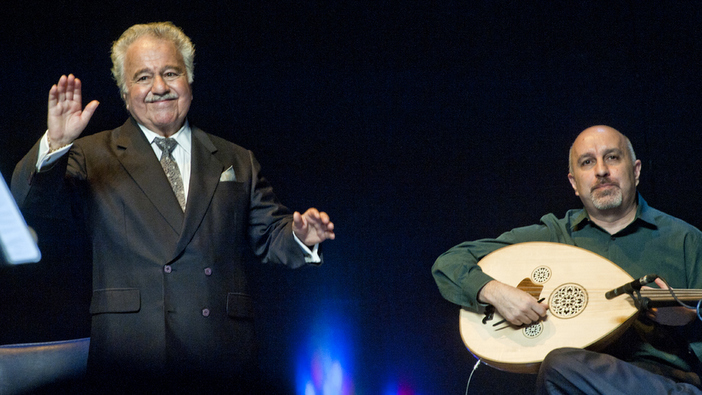
Regarding the future, like the virus itself, there is more unknown than there is known. Frankly speaking, I don’t like performing music or giving lessons with Zoom. Listeners in a venue play an essential part of the music experience. Although we can achieve miracles in the recording studio with today's powerful editing technology, we cannot achieve the magical atmosphere of an inspired live performance in front of an attentive audience. Indeed, I am about to release my 4th live recording. I do know this: Music is one of the rare, precious things that remind us of what it means to be human. It would be a catastrophe if we were no longer able to experience music together, in venues. But of course, I understand that step one has to be: stay alive. Once we can do that, let’s be together, be human, be understanding, patient, forgiving, generous, and let’s listen to music, together.
Atom Egoyan (Director, writer): I’m worried about the smaller theatre companies and of course the independent cinemas
In my case, I’m very thankful I’m not in the middle of production. I have so many friends who had to stop their shooting or last stages of pre-production, and they have no idea if these projects will ever move forward. In my case, I’ve had two future opera projects, one in Quebec City and one in Montreal, cancel. This is quite catastrophic for the opera companies, but I’m sure they will survive. I’m worried about the smaller theatre companies and of course the independent cinemas. Now that viewers are so used to seeing things online, will they ever go back to watch films as they’re supposed to be watched in a theatre? This is the question which really haunts me. What is the future of watching and sharing things together in a collective space? While it’s convenient to have access to so much music and theatre and film online, we must remember that these have been developed as experiences which are so beautifully enhanced by physical chemistry with an audience. Or am I being old-fashioned? Perhaps this will define a huge generational shift in how we absorb and commune with works of art.
The side of me that loves to write hasn’t been effected by the quarantine at all, so this has been a very productive time to work on a new script and listen to all sorts of music. I am designing a new production of Benjamin Britten’s last opera DEATH IN VENICE, and this will hopefully be presented in 2021. I’m also working on two new original scripts. It’s interesting to note that my last feature, GUEST OF HONOUR, was making the film festival tour and last place I presented it was in Belgrade just before the pandemic was declared. Festivals in Sofia and Prague were cancelled. The film is currently being released in Sweden, the only country in the world where cinemas are still open!
Eric Nazarian (Director, writer): Humanity, if it is truly evolved, will wake up from this global horror
As filmmakers, we are social and public creatures. We must interact. The world is our stage. But now, our world is seen and experienced through our windows in the walls and in our computer screens. The magic of making films is creating a unity between people from so many cultures in the filmmaking family and being in the fields of the world. With the quarantine and social distancing, our entire industry is on Pause. We don't know yet what the new "normal" will be and when we can return to making cinema, but that cannot stop us. As a writer, we crave time to think and meditate and get lost in the fields of our imagination. When I can concentrate, I write and read and meditate on what is the purpose of my work and how will it be relevant to our world that is facing unprecedented chaos. I hope my art will contribute to a meaningful empathy and a deeper humanity that is in a critical stage right now in the ocean of human history that we are all a part of.
My hope is to create stories and screenplays, now more than ever, that speak to the global interconnectedness of our species. Movies are getting smaller. Everything we do each day is mini-cinema. We get our news through sound and image. Our industry is shrinking into our tablets, phones and home screens and the need for content is ever greater but the quality of great cinema is a rarity and becoming harder to produce. There will be a 'content craze' for sure in this era of Netflix and internet personalities, but there will be an even deeper thirst and need for more original voices.
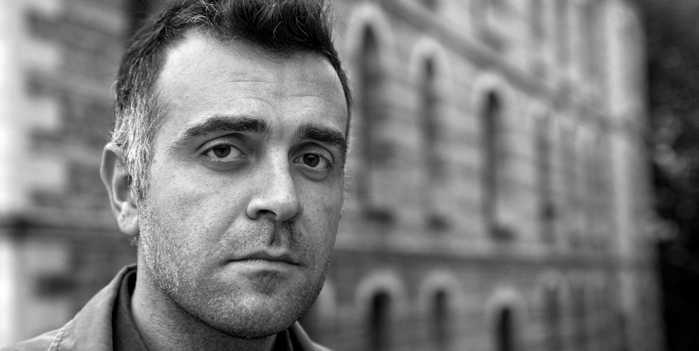
This period has been alarming because so many are sick and dying so we can't just isolate ourselves and think about art. Humanity is in such danger. This is a vicious virus because it forbids us to interact with other humans, therefore we cannot do anything tangible in helping those in need except to hope and support our families, beloveds and the healers working in emergency rooms, hospitals and shelters worldwide. Albert Camus "The Plague" and Gabriel Garcia Marquez's "Love in the Time of Cholera" are more relevant now than ever. This is the power of art. It lives and breathes from the pages of the creative minds of generations past, more powerful and prescient each day. The internet is a massive marvel and a gift but it is also a Pandora's Box as well. As it were, civilization is becoming more isolated because we are glued to our cell phones and the internet. Civilization has become addicted to the morphine of Wifi and endless 'information' exchange which does not mean substance, nor does it mean that we are communicating. This pandemic is a brutal wake-up call by mother nature and an equal opportunity destroyer. Rich or poor, east or west, none of it matters. Humanity, if it is truly evolved, will wake up from this global horror that we are seeing and value human life with much more humane international policies to help the poor and the needy as well as mother earth from the devastation that awaits us if we do not change our toxic methods very soon. But we can't rely on greedy and ignorant politicians with egocentric visions of their self-importance that is irrelevant to the pain of the street people and the marginalized without shelter. We must all take responsibility for ourselves and each other. Fear must not cripple our passion and courage to do what is right for the greater good. There is no way through this darkness unless each of us light our paths together with unity and vigilance for our fragile humanity.
Vahe Berberian (Writer): I will be devoting more time sitting behind my desk writing, and performing shows remotely, on line
I am a very social person, the touchy feely type, who doesn't do well in solitude. Normally I'm either touring, or if I'm home, I'm surrounded by friends. My wife and I hardly spend any time together because even when I am home she'll be on a movie set, working long hours. All that is changed now. We're both home and I'm enjoying that time off, yet I am prone to severe anxiety attacks because of the absurdity of the whole situation we are in. It feel that we will wake up one morning and realize that we all had the same collective nightmare.
So in these circumstances it is very hard for me to concentrate on writing. I feel that I need to do things that require some physicality, and that's why I'm spending long hours in my garden, or working on assemblages and three dimensional pieces in my studio. What has kept me going is the Sunday Live shows I have been doing on Youtube.
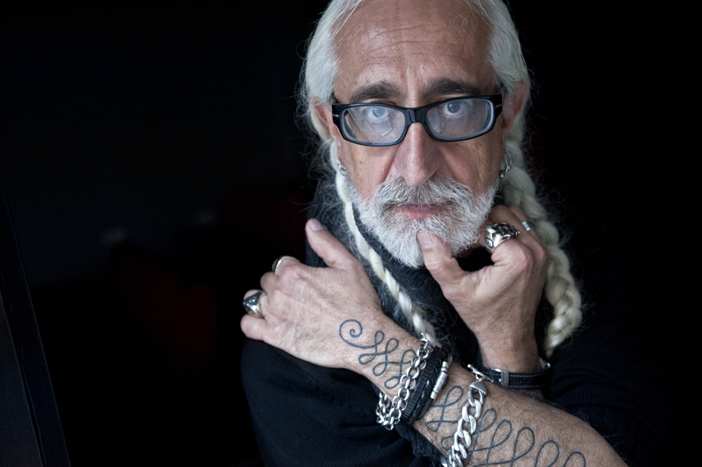
That's a tough question, and probably much of my anxiety comes from that. I have a hard time visualizing a future when I will be touring seven moths of the year and doing shows in packed theaters or halls. I guess the same goes for exhibitions and plays. So I am assuming that I will be devoting more time sitting behind my desk writing, and performing shows remotely, on line. These are tough times and being the pessimist that I am, I don't see much light at the end of the tunnel, and yet, I believe that it is possible to deal with this absurdity by keeping one's sense of humor and being compassionate towards your surroundings.
Kevork Malikyan (Actor): Life, and, living will go on, with new costumes, and, new scenery...
Acting is LIFE, LIFE is acting. An actor’s job, is, to portray, to mirror, the events of LIVING. CORONAVIRUS; An occasion to contemplate, to wake up, to listen. A time to watch, to convey, to explain, to search for the answers for the calamity, brought upon us, by the doings of humanity. Mother Nature has a way of punishing us... Actors, must grab this opportunity to enrich their capacity for knowledge, and, be prepared to channel their emotions, in the ways, painfully, witnessed now. The brain needs to accumulate, the body needs to rest, to tell it ALL...Acting is INTERACTION...
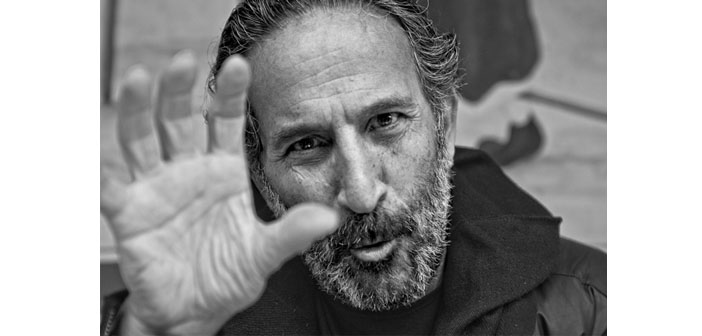
My biggest fear; the social rules, brought in, because of COVID19, like, shaking hands, like hugging, touching, holding, kissing, etc..,things we cannot do on our own, will force the disappearance of our natural instincts, forever...And, play makers in our industry, will start taking short cuts, like smaller cast, (sadly, no room for 65 + 😅), and, technical teams, to further maximise their profits...Whatever happens, we will ladapt, as we always do. Life, and, living will go on, with new costumes, and, new scenery...
Sahan Arzruni (Musician) : We live in a world of virtual vacuum
Art does not exist in a vacuum. Art is about communication. A painting has to be viewed, not just seen; a book has to be understood, not just read; a piece of music has to be listened to, not just heard.
The process of creation is a solitary one. Once completed, a work of art needs to be shared -- engaged, absorbed, appreciated. It’s not enough to give birth to a living entity, it’s necessary -- it is imperative, in fact -- for the newborn to live, to grow, and to reproduce in turn. A work of art is only a link in a chain. A creation -- artistic or otherwise -- needs to be validated in order to exist. Art is a reflection of life.
Today we live in a world of virtual vacuum. We are isolated, cut off from human contact -- we are alone and lonely. Even imagination, a primary source of creation, is stunted. I am disoriented. I am disquieted. I am frustrated, annoyed, angry. I am dejected, anxious, dismayed. I don’t feel needed. I am not communicating. I am not contributing.
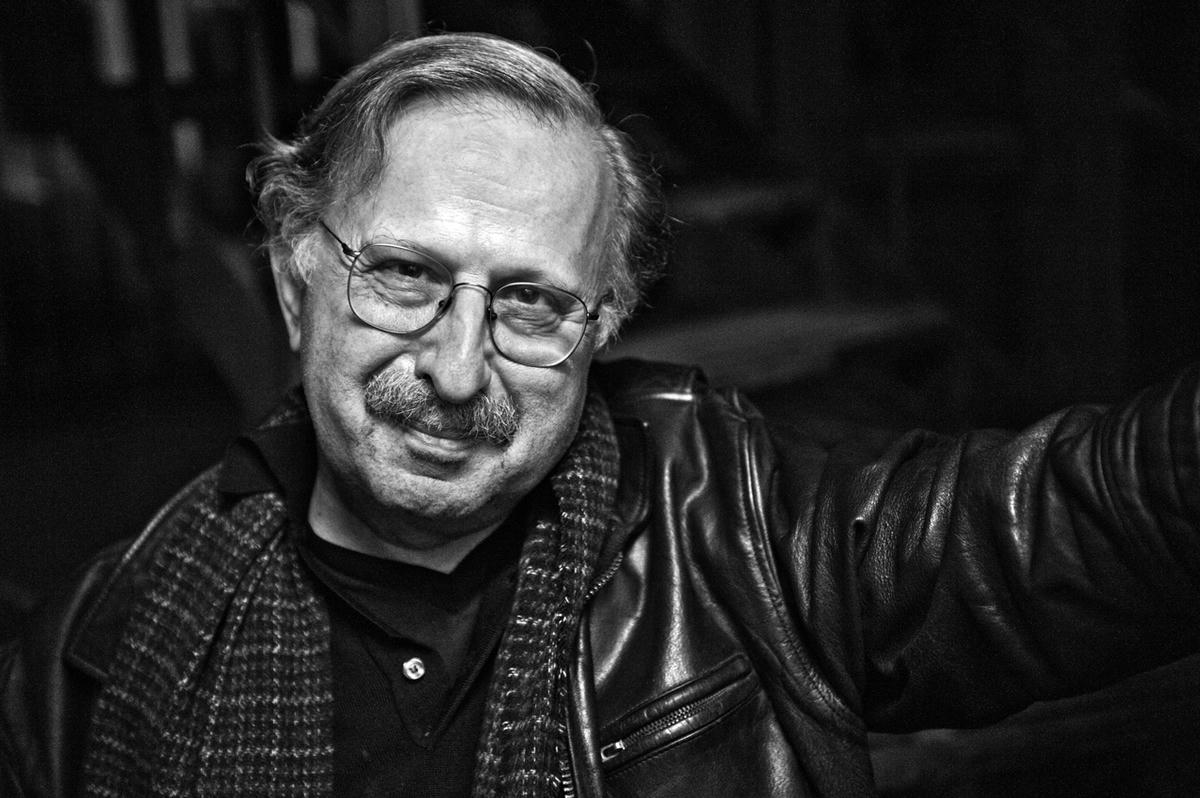
Why play the piano? I find it pointless. Why bother thinking? I find it pointless. I have no desire even to breathe: I find it pointless. I am not active. I prefer to stay passive: to watch TV, to hear music, to let the time go by.
Perhaps this is a phase -- suspended animation -- that will go away in time.
Nancy Kricorian (Writer): Even as we are isolated in our homes, we are finding ways to support each other
For the first several weeks of our confinement I was unable to focus on reading or writing. My spouse was sick with the virus, and we were quarantined from the world and from each other in our home. We slept in separate rooms, washed our hands dozens of times a day, wiped down doorknobs, handles, and counters, and sat twelve feet apart at the kitchen table and in the living room. We were lucky: his case was “mild” and I didn’t get sick. It took four weeks for his energy, as well as his sense of taste and smell, to return. Once he was better, wearing masks, we were able to go outside for short walks. The trees were flowering and the birds were building their nests.
In the past few weeks, finally able to concentrate for an hour or two a day, I have returned to work on my latest novel. The book has three sections: the story opens in New York City on the morning of the 9/11 attacks, the second part is set is in Beirut during the Lebanese Civil War, and the final section is a folk tale set in Hadjin on the eve of the Armenian Genocide. The novel is about generations of trauma and resiliency in one Armenian family, and the fear and stress of the present moment are permeating the descriptions I’m writing about those other difficult times.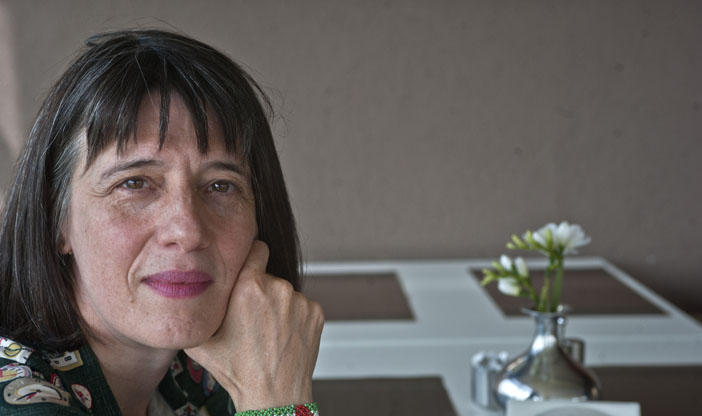
There is so much suffering around us as people continue to be sickened by this illness that has taken so many lives in New York, and around the world. Prisoners are in crowded cells without soap to wash their hands. Millions have lost their jobs; so many are worried about how they will pay the rent, and how they will feed themselves and their children. Immigrant families without papers are not eligible for the meager assistance the government is providing.
Even as we are isolated in our homes, we are finding ways to support each other through mutual aid projects in our neighborhoods, through car protests outside detention centers, and through online organizing to create collective power. My creative life has always been entwined with my activist work, and as I continue writing, I will join friends and comrades in our struggle for a kinder, more equitable, and greener future.
Norayr Kasper (Cinematographer, visual artist): I’m not ready to return to the past
This pandemic arrived unexpectedly endangering lives to so many who suffered the tragic consequences. For those of us lucky enough to stay on the margins of this affliction, it has been an ambivalent process of submission to time.
My Parents used to love watching swallows and sometimes a song or a story would follow inspired by Dzidzernags. My father would often say ‘I wish I could see them land once.’ When I was young I thought that meant he wanted to see one from close by and admire their beauty. Later, I figured he may have been talking out of pity for the restless bird used to swirling existence. Recently, I told this story to a friend who added: if you see one stuck on the ground, you have to help it take flight, otherwise it may become a prey.
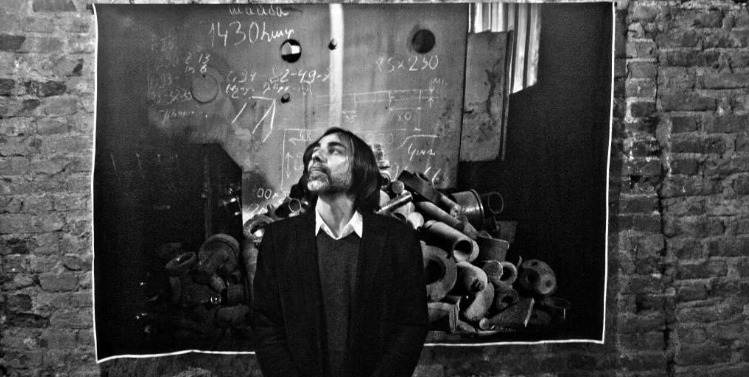
Our swirling lives did come to land and the swallow is on the ground. I’ve been given unaccustomed time to pause and live with my own perceptions without anxious expectations from the closed cycle of hectic servitude. Of course far from being easy to live with oneself, mimicking my before life, or compensating my free time recreating digital mirrors of my previous existence. What obsesses me most is the sense of discontinuation. Obvious as it may seem, this pause has struck me in more ways than I expected as a defining point between before and after.
It’s early morning now, sitting under the blinding Spring sun, I start feeling the wall approaching; this peaceful silence will be shattered by calls to productivity, measured efficiencies and evaluations of effectiveness. Time to punch in the card, the ship is approaching and the show must go on they say. I’m not ready to return to the past, much less to my state of being that, seen even from a short distance of nine past weeks, feels in some aspects unsustainable.
The swallow will get a push to fly again, inspired as I am from self reflections, I’m filled with hope and enthusiasm.
It turned out I needed the world to go silent, because the opposite wasn't enough.
Arsinee Khanjian (Actress, producer): We will do what we humans for better or for worse always do. Survive.
I felt some hesitation before I could commit to this uncomfortable close examination of how I’ve spent my days since March 5th, the first day of my quarantine. My last trip was to Belgrade, which I went to with Atom Egoyan’s new film, Guest of Honour, premiered at the International Venice Film Festival last August. Upon my return from Serbia, I locked myself at home for two weeks. At first, I didn’t think about how my life and my work would be affected. I have sometimes purposefully put myself in a situation where I don’t seek social interaction - I would cut myself off from social media, and go about my days in the privacy of my home doing nothing. This has been a way to manage my time and stress.
However, with today’s reality of a force threatening us all without intention, without strategy, without intelligence and without schedule, my isolation is no longer a personal and predetermined stretch of time at home. Quarantining has become confinement, without a finish date. I am, therefore, in a new reality. Or rather a reality that I have experienced many years ago, during the civil war in Lebanon - at the time we called it hiding. But then, I knew who and what I was hiding from, who and what the aggressors looked like, sounded like. Today, it’s an abstract threat albeit very real. I have to believe in it with a religious fervour. The virus is omnipotent, omnipresent and invisible. I have become consumed by its unexpected onslaught, by its blind rampage, by its indiscriminate cruelty, its relentless compulsion around the world. Ideally, given the restrictions to stay home, I’d spend my days imagining future projects, reading plays, preparing a documentary based on all the footage I have amassed over the years in Armenia. I might simply read books I have prioritized. As it stands, I've started one and then another one without being able to focus. I started researching a photographer’s life and body of work I’ve been obsessed with for a while but that didn’t go far. I started jotting down words in an effort to write a diary - nothing revelatory stemmed from it . I spent many long hours reading articles on social media trusting my “friends” (some of them real) who would post significant and timely pieces. To my astonishment, that became the limit of my engagement or pursuit. Ultimately, and before long, I felt a daunting boredom. This was the moment I recognized a sign of crisis. I can’t take boredom. I panic. I feel petrified by boredom. It’s an emotional punishment that I fear like this plague itself. For me, it’s nothing short of a disease. So, intuitively, I brought down my self-imposed notions for artistic productivity and carried on with straightforward activities. I listened to some music; went into Houshamadyan's archives and acquainted myself with their wealth of cultural and historical materials, and finally succumbed to watching classic movies on Criterion, series and documentaries on Netflix or Amazon where I discovered unsuspected interest in topics such as espionage and WWII war stories. Eventually, I gave up on expecting creative outputs from myself based on the sheer fact that I have the time available day after day. This is not to say that I understand why I am incapable of initiating or generating work. This is not to say that I am relieved that I surrendered myself to pure uninspired accomplishments. This is also not to say that uncertainty, anxiety, confusion are not perplexing unconscious obstacles that can surreptitiously take over willpower, determination, fantasy and desire.

A few things I am consumed by nowadays both intellectually and tangibly are our ultimate vulnerability against mother nature, our ire in preventing death, our simultaneous capacity for hope and despair, the distress this isolation is imposing on people and their psyches, domestic violence that has increased all around the world because of the proximity between the victim and the perpetrator.
I am not able to create for now.
But the arts whenever I watch them online or hear others experiencing them, remain a unique and a wonderful way to keep us positively engaged and comforted. Theatre productions, opera, dance, concerts, songs and movies have found an unmatched presence into many people’s daily lives thus revealing to them their invigorating and significant substance.
I am unsure what the world will look like after the Covid-19 pandemic. A simple guess would be that many socio-economic, cultural, artistic, political changes and practices will take place incrementally or concurrently. We will feel overwhelmed by the challenge of recuperating, we will be happily surprised by our ability to endure, or perhaps we will find ourselves in denial refuting all that we lived through as being serious , or focusing on recovery while becoming more engaged in shaping better societies for ourselves. But mostly we will start to tell each other what, in hindsight and cumulatively, we, our families, our communities, our countries experienced. Our creative impulses will resurge. We will compose new music, write new plays, present new performances, have new fantasies, and find new passions, invent new sciences and probably explore new obsessions... We will gather unbroken energies and untouched means to share and communicate once again. We will do what we humans for better or for worse always do. Survive. As to the moral of the story: humility, good will, curiosity and compassion will still and always remain tenets of our humanity. 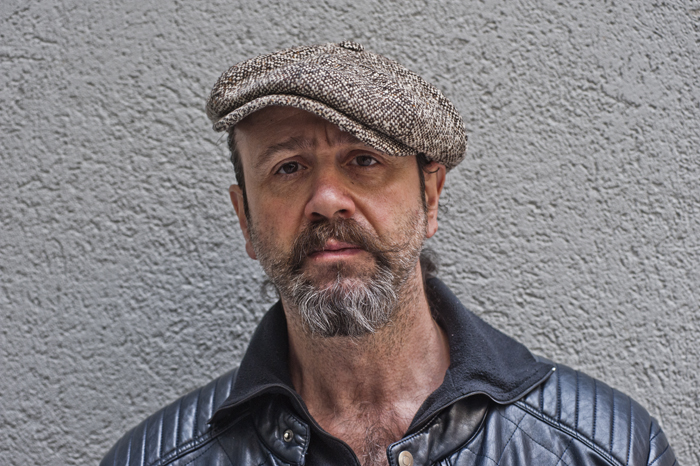
Antoine Agoudjian (Photographer): As long as there is life there is hope ...
I am confined to my home with my wife and two children. This confinement put my work on hold in more than one way. Having already gone to Syria last December from where I had come back with enough material for a beautiful publication of 8 pages of my work in a National Magazine, I had therefore planned to go abroad once again in order to continue my mission. I also had to abandon an exhibition project for the month of April. Since February, I had been busy with the preparation for these new projects and their cancellation caused an instant break in my progress. My creative process is consubstantial with the realization of these trips because they form its matrix .
The post-isolation period will create a multitude of problems with no responses. First of all, it will be very difficult to carry out my photographic missions abroad without the assurance of safety from contracting the virus. Even more serious is the risk of infecting my family when I return. Only a vaccine will solve this dilemma and without it, it will be difficult to envisage new journeys. In addition, this pandemic has plunged the world economy into a systemic collapse and has flung many countries into a recession not seen since 1929. For the last five years I have managed to finance my photographic missions mainly through my publications in press magazines. This current global health tragedy has shattered an already economically-damaged press even more and it is very likely that it will now be very difficult for me to finance my missions without the contribution of artistic patronage. But as long as there is life there is hope ...
Serge Avedikian(Actor):Nature takes revenge against man because man does not respect it enough
There are events in life that force us to obey certain rules and conditions that we did not expect. It turns out that some such events are special because they endanger the lives of others and ours.
You withdraw and lock yourself in, more than usual, because you have to have as little contact as possible. But virtual contacts continue through all other possible networks which make it possible of not to be cut off from the world by thought and speech. For people like me who write texts, scripts, plays or who are editing their upcoming film and who can work remotely too, this period is viable in an even more concentrated way. Time seems more conducive to reflection, to introspection, to the possibility of working slower. But since you have to have a look at this work, therefore you have to be in contact with the outside world, have it read, get it watched, find the person you were working with, even if it is forbidden to move between places. So you have to take the risk of breaking the rule, sometimes for a good cause. I continued to write, to correct what I had written. I continued to make people read and listen to their impressions. We took over the editing of the film about the story of Soloz, which was halfway through and we will finish it soon. And then, we had to follow the reactions of the public of the Armenian public channel on the broadcasting of the series, "Anatolian History" which had also been filmed in Turkey. We gave interviews to journalists and responded to letters from viewers. This confinement we have been forced to live in even made the focus and curiosity of people on this series even more acute. In summary, I didn’t have time to just do nothing, which I don’t know how to do anyways. Only the theater and the performing arts, such as dance, opera, concerts and film shoots will be severely penalized by this unexpected phenomenon. And this is something very hard to imagine. Can we live without theater?
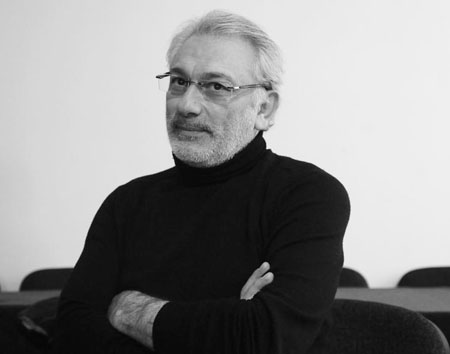
I have the impression that things will come back to life little by little and the dynamics will be different from before. We must learn to live with the presence of this virus and those that may follow. What will be greatly missed is the human and friendly contact. Because wearing a mask or gloves, washing your hands very often, paying attention to the distance you take towards others are signs of caution and vigilance that prevent the warm and emotional impulse towards others.
I don't know how we will be able to go to the theater, whether as an actor rehearsing a play or as a spectator watching it? I don't know how we are going to behave on a film set? I don't know how we are going to hold back the urge to kiss someone or to hug them? The frustration is likely to be permanent.
We will have to reinvent ourselves in our own work and find different forms, based on new technologies and social networks. We risk becoming locked more in the imagery of what we create instead of being fully in the object of the creation itself. Nature takes revenge against man because man does not respect it enough ... It is a lesson to remember and accept the consequences.
(All artist photos taken by Berge Arabian)


